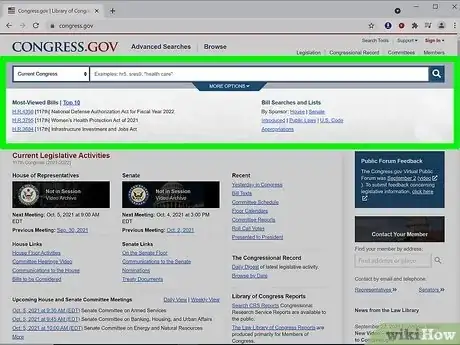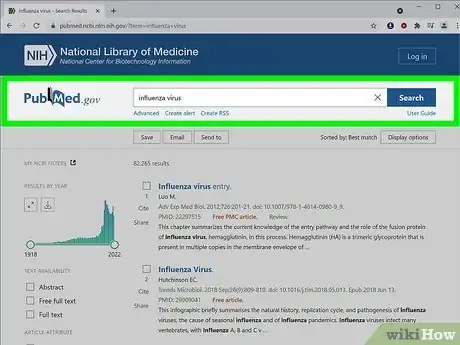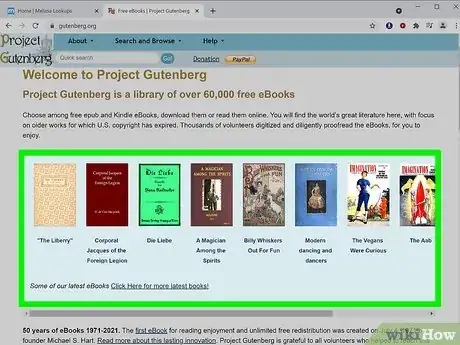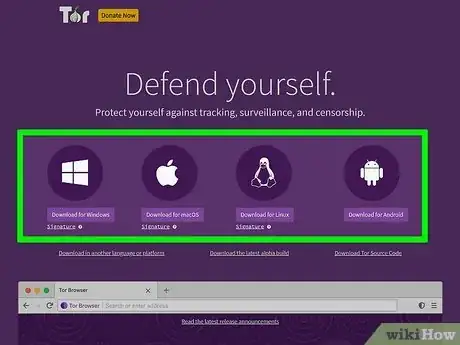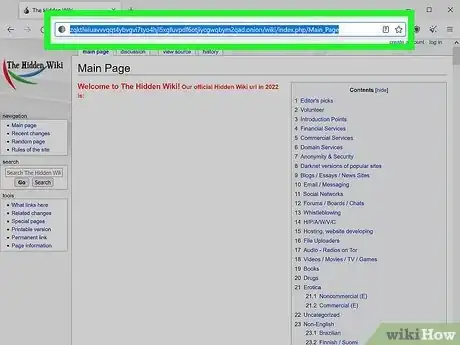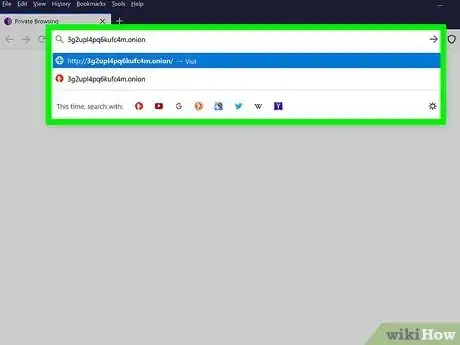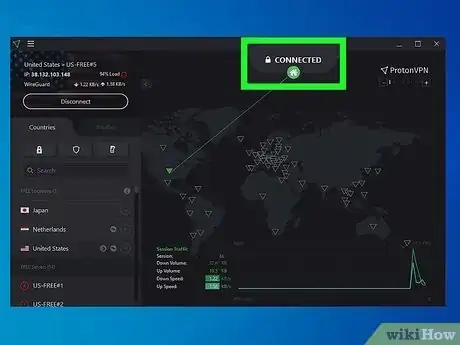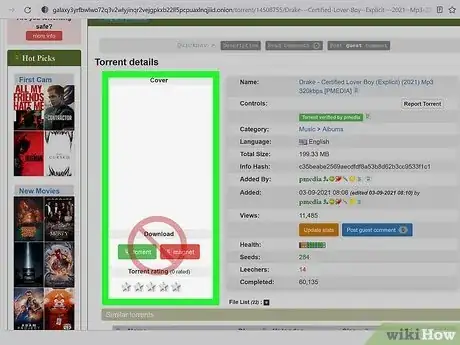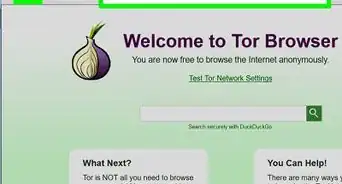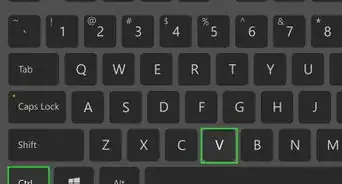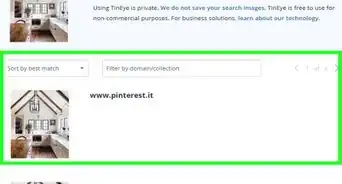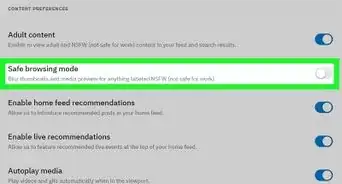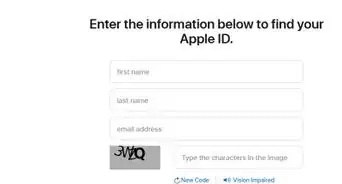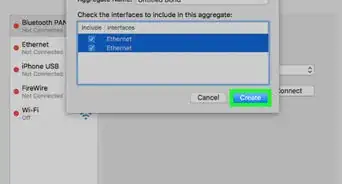This article was co-authored by wikiHow staff writer, Nicole Levine, MFA. Nicole Levine is a Technology Writer and Editor for wikiHow. She has more than 20 years of experience creating technical documentation and leading support teams at major web hosting and software companies. Nicole also holds an MFA in Creative Writing from Portland State University and teaches composition, fiction-writing, and zine-making at various institutions.
This article has been viewed 1,114,397 times.
Learn more...
Curious about what happens on the Deep Web? The Deep Web just refers to web data that isn't indexed by a search engine like Google. Unlike the Dark Web, which is the hidden corner of the internet often used to conduct illicit or anonymous activity, anyone can get to the Deep Web safely using a regular browser. We'll show you how to find information on the Deep Web, as well as how to safely dip your toes into the Dark Web.
Steps
Browsing the Dark Web with Tor
-
1Download and install Tor. Dark Web addresses typically look like long strings of letters and numbers, and always end with .onion. Unlike browsing the Deep Web, you'll need a special web browser to browse the Dark Web because of these strange addresses. You can find Tor, the most popular browser used to access the Dark Web, at https://www.torproject.org/download.
- Tor has some added features for security, including the ability to change your location so that websites think you're in another region.
-
2Connect to Tor. Once your VPN is turned on and no browser windows are open, open Tor and then click Connect. This will open the Tor home page.
- Tor recommends that you don't maximize the Tor window, as doing so will publicize your screen size—this could be problematic if you're trying to be anonymous.[1]
-
3Change your Tor security settings. Once you've launched Tor, click the shield icon at the top-right, select Change, and then choose Safest as your security level.[2] This ensures that tracking scripts and other forms of monitoring cannot load on Dark Web sites.
-
4Browse the Dark Web. Now that you're on the Dark Web, you can visit websites that end with .onion.
- A mostly safe place to start is The Hidden Wiki, a site that contains a frequently updated set of links to common Dark Web sites including email tools, messaging, website hosting, blogs, and more. Find it at http://zqktlwiuavvvqqt4ybvgvi7tyo4hjl5xgfuvpdf6otjiycgwqbym2qad.onion.
Dark Web Browsing Precautions and Tips
-
1Never access the Dark Web without a VPN. Before downloading Tor, which is the most common Dark Web-accessible web browser, you must sign up for and install a Virtual Private Network (VPN) to encrypt your connection. NordVPN, Surfshark, and ExpressVPN are common choices, but you can choose any VPN that has the following features:
- A kill switch for when your VPN goes down.
- A no-log policy, which can protect you if the government demands log files from your VPN server.
- Anonymous sign-up.
- Quick load times.
- Protection against IP and DNS leaks.
- The ability to connect via another country's server.
-
2Make sure that your VPN is on before connecting to Tor. Your VPN will hide your IP address from anyone attempting to view your location.
-
3Linux is strongly recommended for people who plan on using the Dark Web. Tails is a popular option, as it's portable and has the Tor network built in. You could also use a virtual machine instead of booting Tails from a USB or optical drive, such as VirtualBox.
- If you're on a Mac, you should be fine if you use a VPN and Tor. Just makes sure you're protected from viruses and other malware—Malwarebytes is a great option for malware protection.
-
4Avoid buying anything or sending money on the Dark Web. Much of the Dark Web's illegal content is based around things like human trafficking, illicit drug and firearm sales, and so on. Nearly anything available for sale on the Dark Web would be illegal in most regions.
-
5Never download files or accept chat requests while on the Dark Web. Do not search for or click links to pages referencing or participating in illegal topics. Simply viewing certain types of web pages may be illegal in your region, so it's best not to take any chances.
Community Q&A
-
QuestionShould I take any precautions while on the deep web?
 Community AnswerCover your webcam and microphone. Do not enter your email address or any passwords while using TOR. Hide your IP address. Be aware in advance that you may see things you later wish you hadn't.
Community AnswerCover your webcam and microphone. Do not enter your email address or any passwords while using TOR. Hide your IP address. Be aware in advance that you may see things you later wish you hadn't. -
QuestionIf someone is trying to hunt me down what do I need to do in order to keep out of their way?
 JayRulesWikihowCommunity AnswerMake sure you do not make any contact with ANYONE on the deep web so you do not have this issue. Have a VPN and antivirus protection software on hand so you can keep yourself safe from hacks. If possible, use an old computer you don't mind getting messed up and make sure it is running Mac or Linux, so it is less likely to get viruses. I recommend using a VM.
JayRulesWikihowCommunity AnswerMake sure you do not make any contact with ANYONE on the deep web so you do not have this issue. Have a VPN and antivirus protection software on hand so you can keep yourself safe from hacks. If possible, use an old computer you don't mind getting messed up and make sure it is running Mac or Linux, so it is less likely to get viruses. I recommend using a VM. -
QuestionHow much trouble can I get into just for venturing onto the deep web?
 Community AnswerNone, as long as you don't do anything illegal like buying or selling illicit items. You are protected under the first amendment. Also, follow good OPSEC.
Community AnswerNone, as long as you don't do anything illegal like buying or selling illicit items. You are protected under the first amendment. Also, follow good OPSEC.
